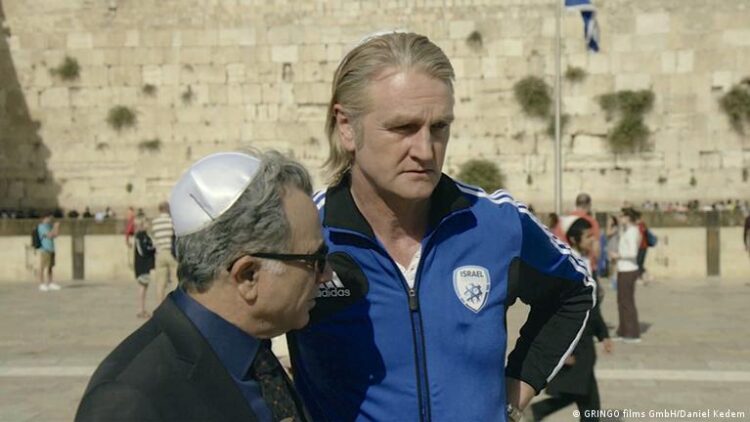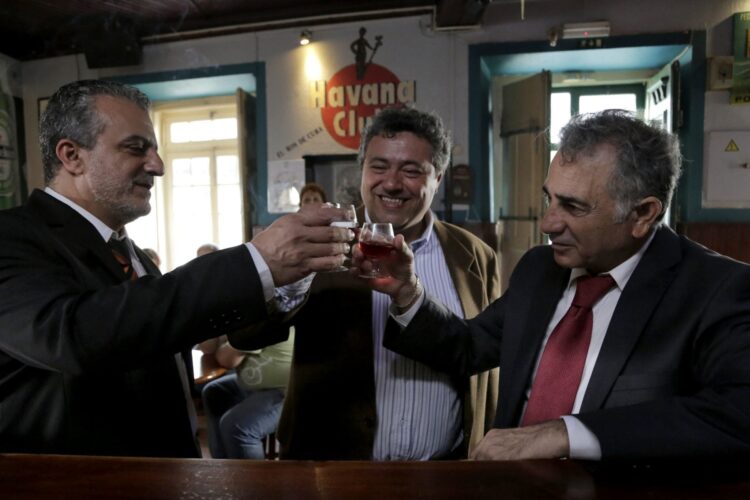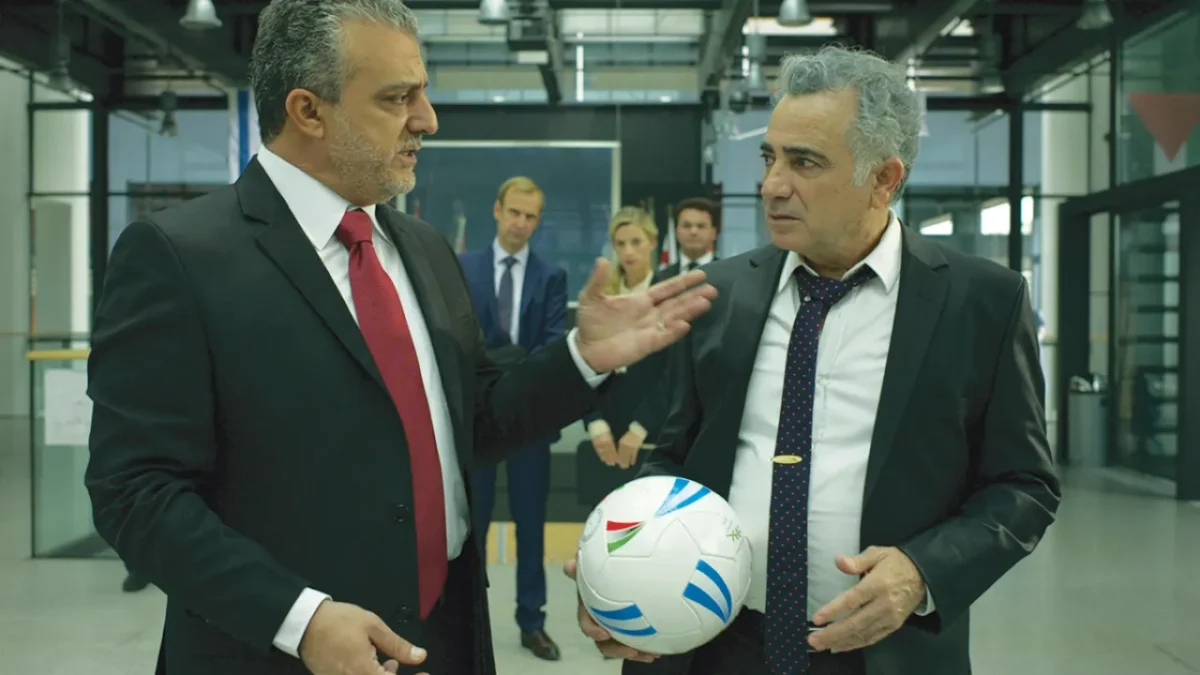Turn off your reality monitor as you watch Eyal Halfo’s The 90 Minute War, which can be viewed on the ChaiFlicks streaming platform.
This fanciful Israeli film is built around a wildly implausible plot: The Israeli government and the Palestinian Authority have decided that the logical way to end their conflict is by means of a single soccer game in which the winner takes all, assuming control of Israel, the West Bank and the Gaza Strip.
It’s far-fetched in conception, but surprisingly, this entertaining satire works because everything else in it rests on a solid foundation of realism. It may be all the more appreciated now that the 2022 World Cup soccer competition is in full swing.
Taking the form of a mockumentary, it revolves around the Israeli and Palestinian presidents of their respective soccer federations (Moshe Ivgy and Norman Issa), both of whom are certain of victory.
To the Palestinian official, the forthcoming match is a once-in-a-lifetime opportunity to achieve statehood from the river to the sea. To the Israeli, it’s a game of monumental proportions that Israel cannot afford to lose.
It will be played on neutral ground in Portugal. “It’s going to be the Camp David of soccer,” exults the Portuguese manager of the stadium.

Muller (Detlev Buck), the German coach of the Israeli side, realizes it’s a historic game for the ages. To better acquaint himself with Jewish history, he visits the Western Wall in Jerusalem and the Masada fortress in the Negev desert.
These excursions are useful only up to a point. Midway through the film, Muller is torn by angst when he wonders what will happen if Israel loses. Will a German be blamed for Israel’s demise?
Another problem arises over the selection of a referee. The Israeli rejects a Swedish candidate, while the Palestinian balks at a Belgian because his daughter was once a volunteer on a kibbutz.
A further irritant surfaces when the Palestinian team, en route to a practice field in Gaza, is stopped by soldiers at an Israeli checkpoint. Furious over the incident, the Palestinians threaten to walk away from the much-anticipated game.
As these developments unfold, an overly enthusiastic Palestinian broadcaster discusses the right of the return, a sacrosanct concept among Palestinian refugees. She blithely assumes that Israeli Jews won’t mind going into exile in the United States because they’re basically Westerners who do not belong in the Middle East.
Back in Portugal, the Portuguese manager’s wife has trouble understanding how one of the players on Israel’s squad, an Israeli Arab, can identify as both an Israeli and an Arab.
To stiffen the resolve of his players, the Palestinian official leads them on a tour of a refugee camp in the West Bank.

Halfo injects further dollops of drama into the film by implying that the Palestinian team will train in Iran, Israel’s deadliest enemy, and by suggesting that an Israeli Arab player has defected to the Palestinians.
As the film reaches its denouement, the presidents of the Israeli and Palestinian soccer federations momentarily cast aside their deeply-held political convictions to voice regret over missed opportunities by both sides to achieve mutual reconciliation.
A viewer is left with the gnawing feeling that peace is not completely elusive.
